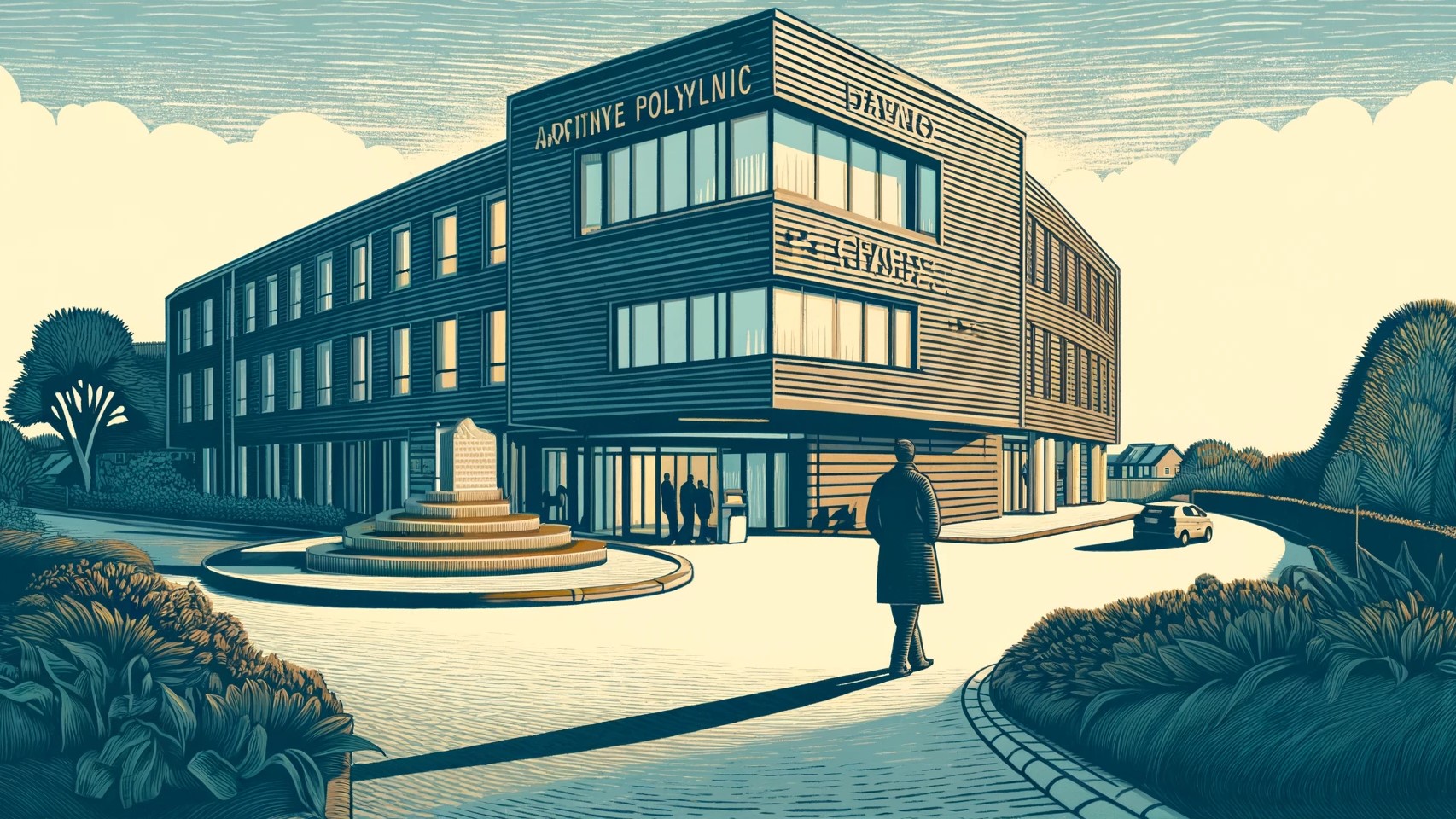
I cast a long shadow as I approach the polyclinic in the evening light. A group of men loiter at its entrance as though at a labour exchange, and indeed the clinic looks more like a labour exchange than a hospital. I see no ambulances, doctors or nurses, no signs pointing to maternity or radiography. Will this place have the instruments needed to manage my condition: the eye drops, the lasers and so forth? I expect I will sit in a waiting room until they call my name. A nurse will ask me to read the letters on a Snellen Chart. She will put two types of drops in my eyes: the first to numb them and the second, atropine, to dilate the pupils. I will sit on a plastic chair in a corridor, creating the impression of progression. My vision will gradually blur and at length they will call me into another room and ask me to place my chin on a plastic rest. A line of laser light will scan my retina at various angles. I will wait in a corridor a while longer and then go into an office. A young Spanish or Singaporean woman will show me the scan and point out all the pits and bumps in my retina. She will tell me whether she recommends cataract surgery on my bad eye. My good eye will have to wait.

Leaving the polyclinic, I wander out into the prosaic avenues. There I find an ugly pub constructed of the same dull brown 1950s bricks as the clinic. Having ordered a pint and some peanuts, I sit at an outside table. A girl brings a large bowl of nuts and places it on the pavement near my feet. I notice for the first time the pub’s improbable name: the Pot-Clinic. Over the road I see another pub whose name I cannot make out, the atropine’s effect having not yet worn off. It looks older and more characterful than my pub but no more inviting. The pint lasts me only fifteen minutes for want of mindfulness. I gulp the beer and crunch the nuts without paying attention. I don’t know how I will get home for I live twelve miles away. I will have to order a taxi. The landlord supplies me with a number and I dial it. An old-style London cab turns up and the driver engages me in conversation as we cross the Downs by night. He served as an RAF pilot before becoming an airline one, and he enjoys cross-country skiing. I decide to believe about half of what he says.

Halting the car at the top of the Downs, he suggests we swap seats. I note his RAF uniform and the steering wheel on the left. He fixes me with his gaze and tells me his life story. He describes the transition from aridity to strip farming as you fly east over Central Asia and into Chinese airspace. As he speaks he reminds me of James Callaghan, also known as Sunny Jim. At that moment a vintage military aeroplane flies across the night sky. Though I’ve already had my fill of peanuts we share another small bowl of them as we chat.

